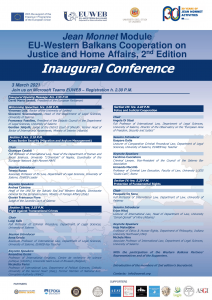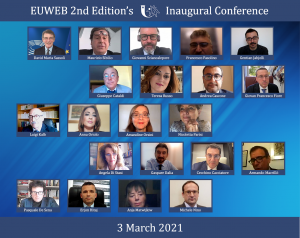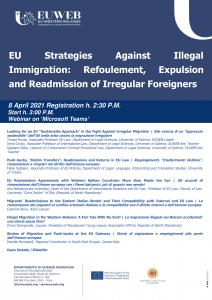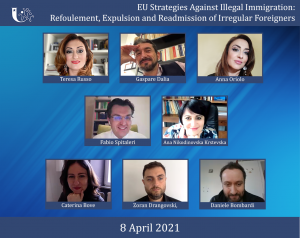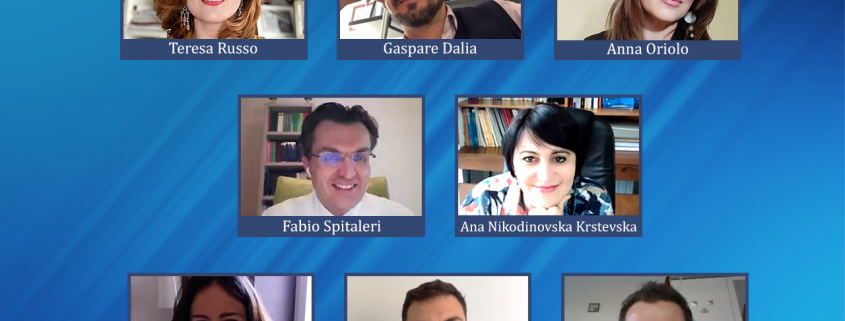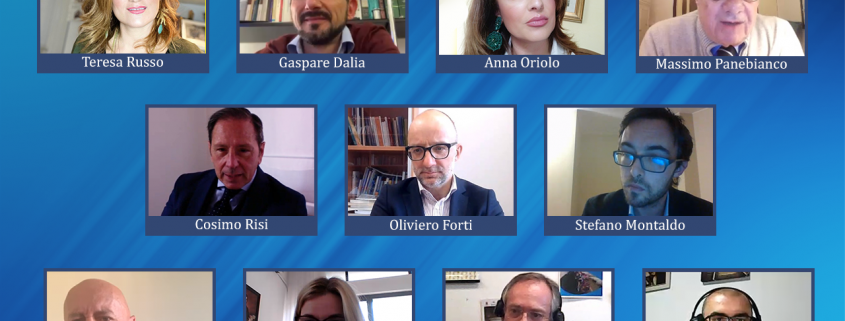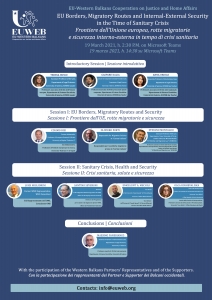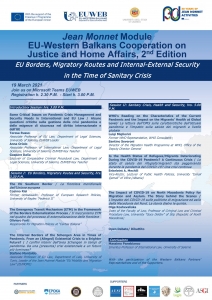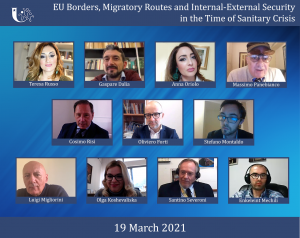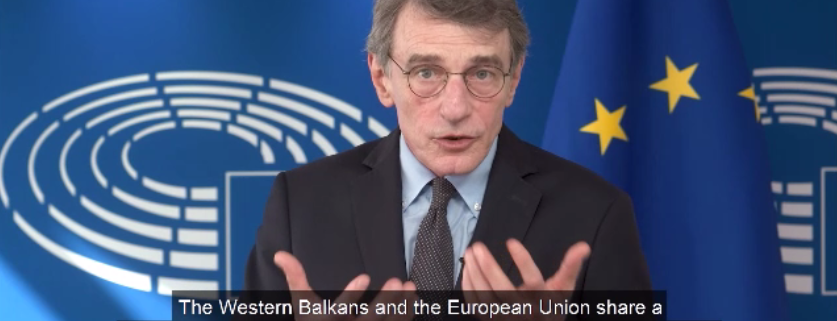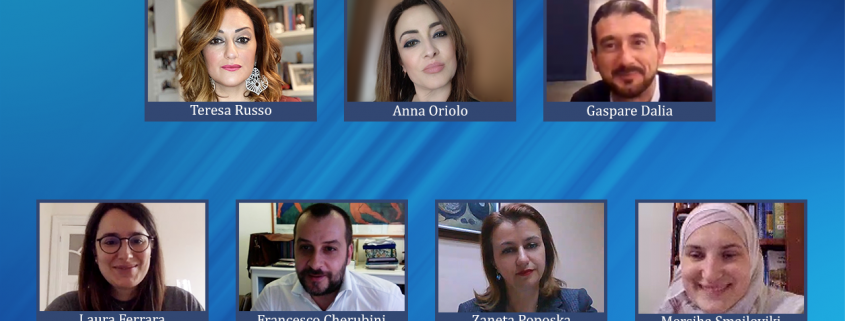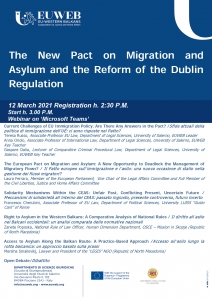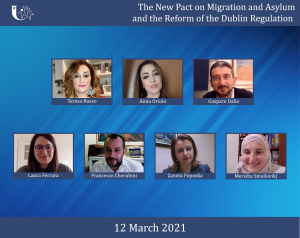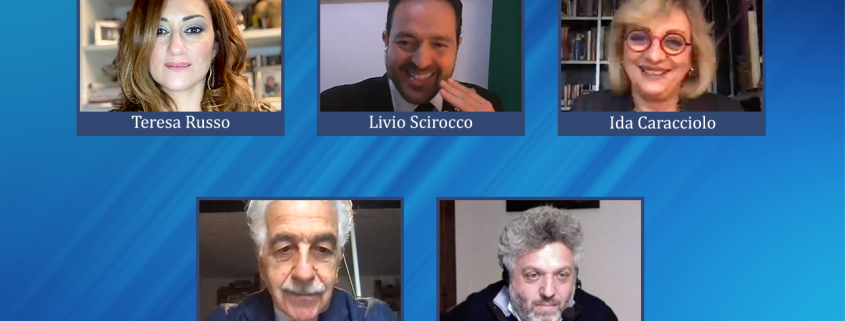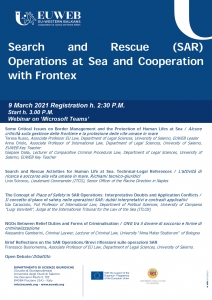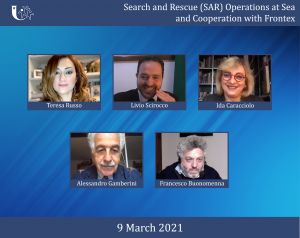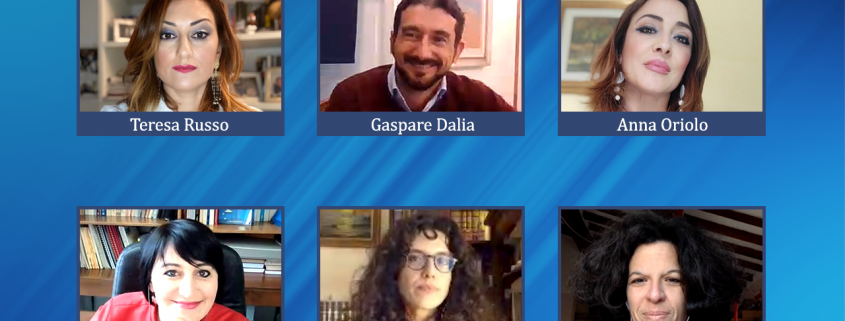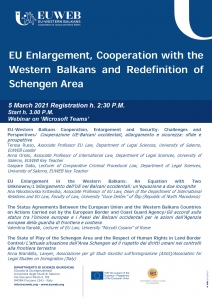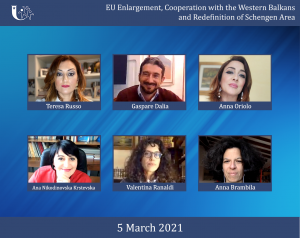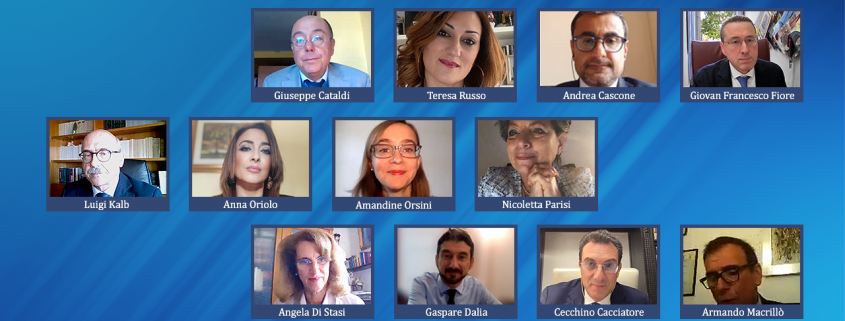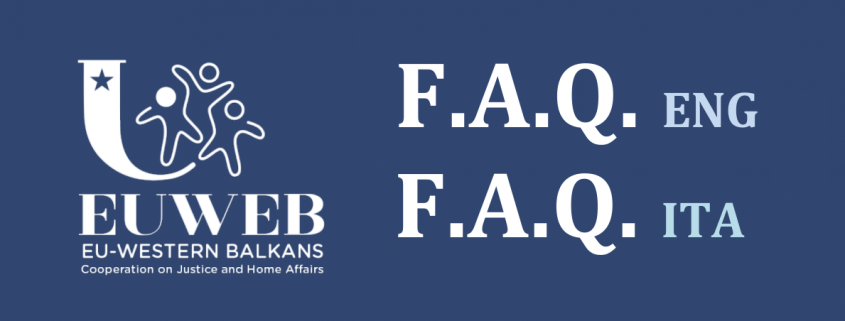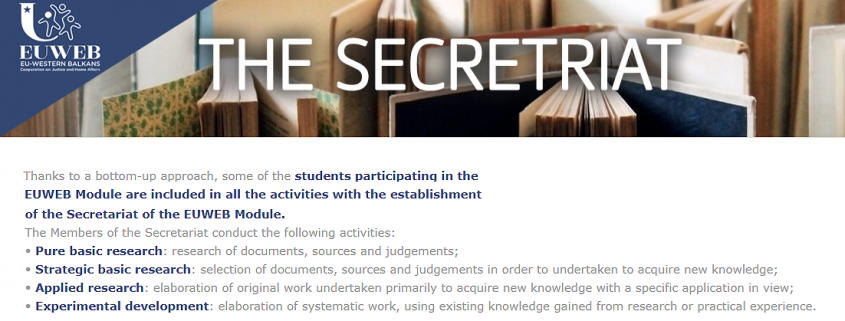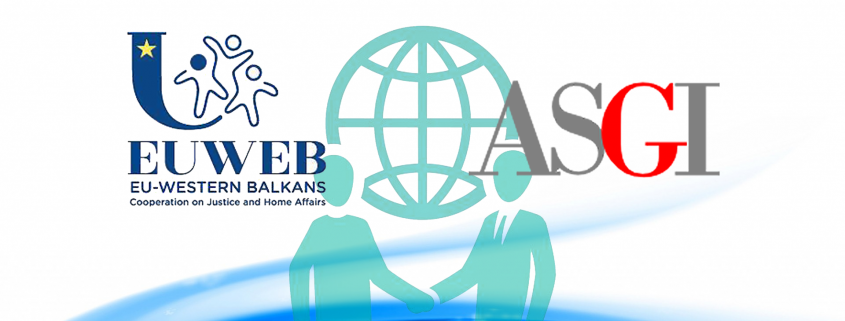On Wednesday 3 March 2021 at 2:30 PM on the platform “Microsoft Teams”, the inaugural conference of the Second edition of the Jean Monnet Module “EU-Western Balkans Cooperation on Justice and Home Affairs” (EUWEB) took place.
EUWEB is an Advanced Specialization Course coordinated by the Profs. Teresa Russo (Module Leader), Anna Oriolo and Gaspare Dalia (Key Teaching Members).
The event kicked off the cycle of training courses carried out weekly from March to June 2021, dedicated to deepen the topics of immigration, asylum, border control, fight against transactional crime, police and judicial cooperation as well as the protection of fundamental rights with a view to the future accession of the Western Balkans to the Union. This year the Course will give specific details concerning the impact of the current health emergency, and information and communication technologies on said topics.
The Conference was structured in four sessions that reflect the thematic and research areas of the Course and it started with with the Inaugural Opening Message by the President of the European Parliament, David Maria Sassoli and the welcoming speeches of the Rector of the University of Salerno, Prof. Vincenzo Loia, and Profs. Giovanni Sciancalepore (Head of Department of Legal Sciences) and Francesco Fasolino (President of the Didactic Council of the Department of Legal Sciences), in addition to Dr. Gentian Jahjolli, (Judge at the District Court of Shkoder, former head of the international agreements sector of the Albanian Ministry of the Interior).
The First Session (cross-border security, migration and asylum management, h. 3:10 pm) chaired by Giuseppe Cataldi (Full Professor of International Law, Head of the Department of Human and Social Sciences, University “L’Orientale” of Naples) and introduced by Teresa Russo (Associate Professor of European Union Law, Department of Legal Sciences, University of Salerno) was enriched by the reflections of Andrea Cascone (Head of the Unit for the Adriatic Sea and Western Balkans at the Directorate General for the EU – Ministry of Foreign Affairs) and Giovan Francesco Fiore (Judge of the Court for the Juvenile Court of Salerno).
The Second Session (fight against transnational crime, h. 3:55), chaired by Luigi Kalb (Full Professor of Criminal Procedure, Department of Legal Sciences, University of Salerno) and introduced by Anna Oriolo (Associate Professor of International Law, Department of Legal Sciences, University of Salerno), included the relations of Amandine Orsini (Professor of International Relations, Centre de recherche en science politique, CReSPo, Université Saint-Louis of Brussels) and Nicoletta Parisi (Professor of International Law at the Department of Political Science of the Catholic University of the Sacred Heart of Milan).
The third session of the Conference (police and judicial cooperation, h. 16:40), chaired by Professor Angela Di Stasi (Full Professor of International Law and Director of the Observatory on the “European area of Freedom, Security and Justice”, Department of Legal Sciences, University of Salerno) and introduced by Prof. Gaspare Dalia (Head of Comparative Criminal Procedural Law, Department of Legal Sciences, University of Salerno), focused on the analysis of the Criminal Lawyer Cecchino Cacciatore (Vice-President of the Council of the Salerno Bar Association) and Armando Macrillò (Criminal lawyer and Lecturer of Criminal Law Execution, Faculty of Law, LUISS University “Guido Carli” of Rome).
Lastly, the Fourth Session (protection of fundamental rights, h. 5:20) chaired by Pasquale De Sena (Full Professor of International Law at the Department of Law of the University of Palermo) and introduced by Erjon Hitaj (Head of the Department of Law, Lecturer of International Law, University “Ismail Qemali” of Vlora, Albania), was animated by the participation of Anja Matwijkiw (Professor of Ethics & Human Rights at Indiana University Northwest, USA) and Michele Nino (Associate Professor of International Law, Department of Legal Sciences, University of Salerno).
The Conference was also attended by professors of Albanian and Macedonian universities, as well as representatives of associations, respectively as partners and supporters of the Jean Monnet Module EUWEB.
